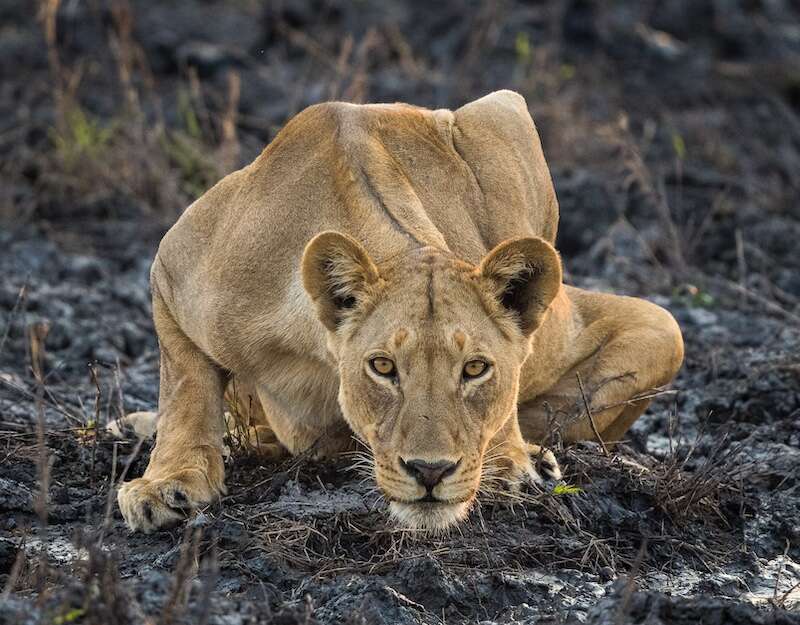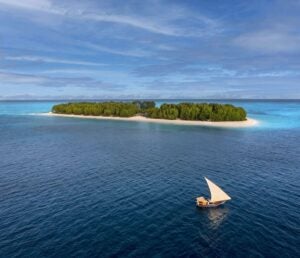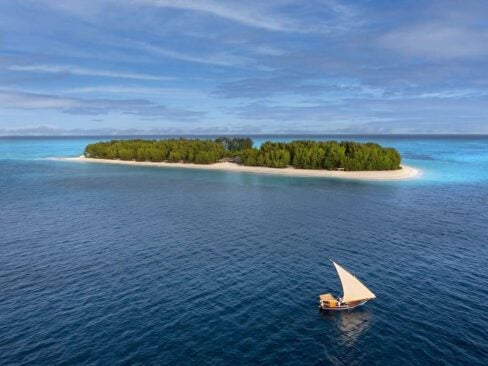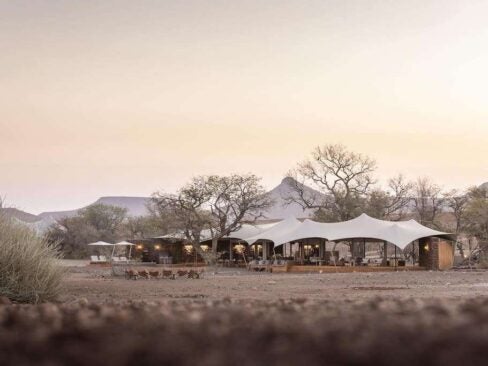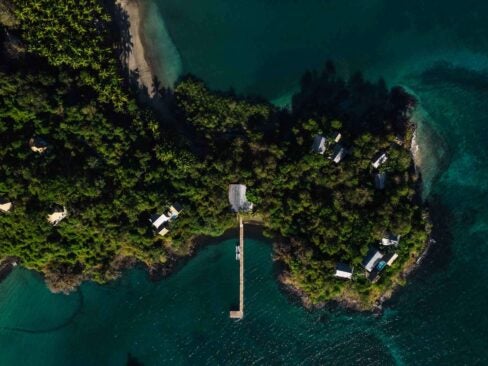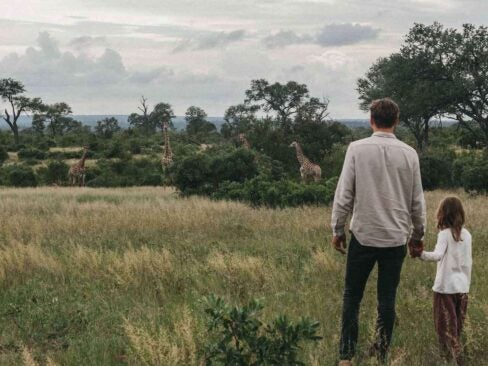“So, what is it exactly, you’d like to know?” The question dances enthusiastically across Dinny’s features, from her easy smile up towards her striking cheekbones in the searing Botswana sunshine. “Yes, our village, Mababe, is a Bushman village. We number about 300 and nearly all of the people working here in the camp are from the village.” Responding eagerly to my interrogations to understand more about the famous Bushmen of Southern Africa, I learn that their skin is lighter, the cheekbones come as standard, and they are, according to Dinny, inherently non-confrontational and non-hierarchical. They’re also the original hunter-gatherer inhabitants of this land, where their footprint is traced back over 30,000 years. With mankind’s origins long confirmed as lying within the African continent, recent academic theory also posits Botswana as a probable epicenter. I’m back, it seems, where we all began.
What Dinny doesn’t elaborate on is that the Bushmen, a rather controversial term derived from the Afrikaans ‘boesman’, for the San peoples, have endured a pretty rough ride in modern times. This may be somewhat surprising as Botswana, Africa’s longest-lasting democracy, with its reputation of a laidback population of smiley happy people, impresses in so many ways. But with diamond mining being Botswana’s principal industry, the discovery of a multi-billion-dollar deposit in the San’s Kalahari heartland straddling the Botswana-Namibia border, was never likely to play well, as an unresolved decades-long dispute reaffirms.
[See also: Wilderness Usawa Serengeti: The Mobile Safari That Follows Nature]
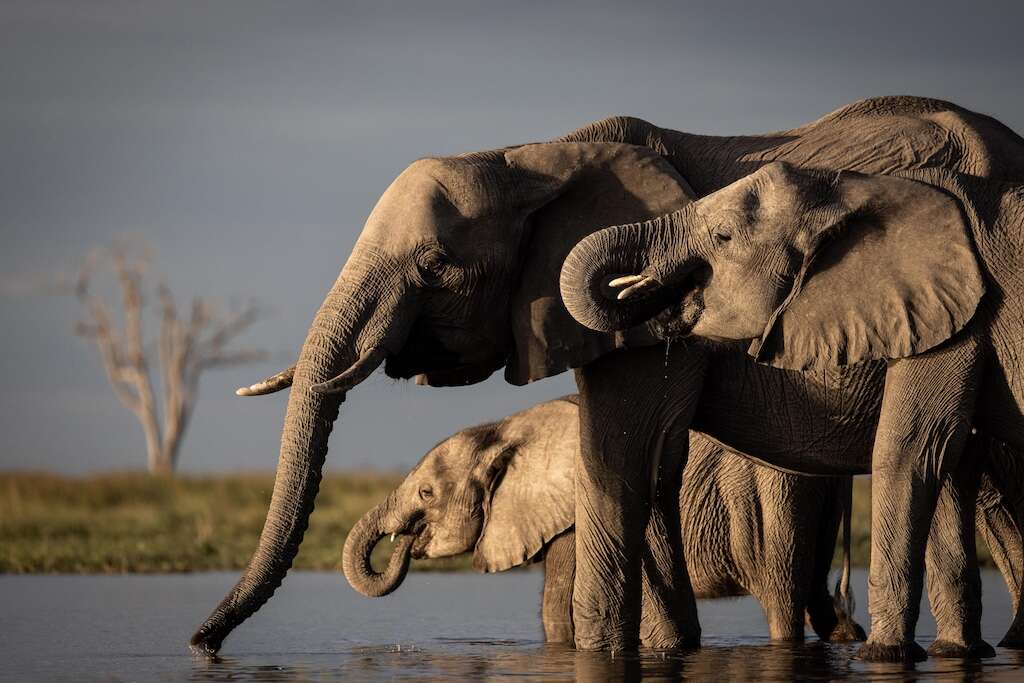
A conservation-focused safari industry runs a close second to diamonds, however, and Mababe, a way off from established targets of touristic interest, notably the breathtaking Unesco-listed Okavango Delta, suddenly finds itself a focus of attention. Botswana operates a high-value, low-volume template for overseeing its blisteringly beautiful bushland and the astonishing array of wildlife within it. Whilst catering to predominantly HNW visitors inevitably leads to accusations of elitism, its success in resisting the ravages of over-tourism remains incontrovertible.
For years, the community leased land to a hunting operation until hunting was paused in 2013, though Mababe now takes a different turn, affording exclusive use of almost 200 sq miles to safari operator Wilderness, long established in Botswana. Wilderness – where a major stake was recently acquired by the world’s largest impact investment fund backed by U2’s Bono, Richard Branson, Luarene Jobs and other assorted billionaire philanthropists – unveils its newest safari camp in Botswana called Mokete, where Dinny now works as a manager. Not quite as ultra-luxe as some of their other outposts, it segues seamlessly with the untamed bushland that surrounds it.
Amidst a post-apocalyptic landscape where one of the biggest herds of elephants in Africa has battered, bashed, stripped and scraped seemingly every tree and shrub in sight, four hunters are focused on their mission with laser-like intensity.
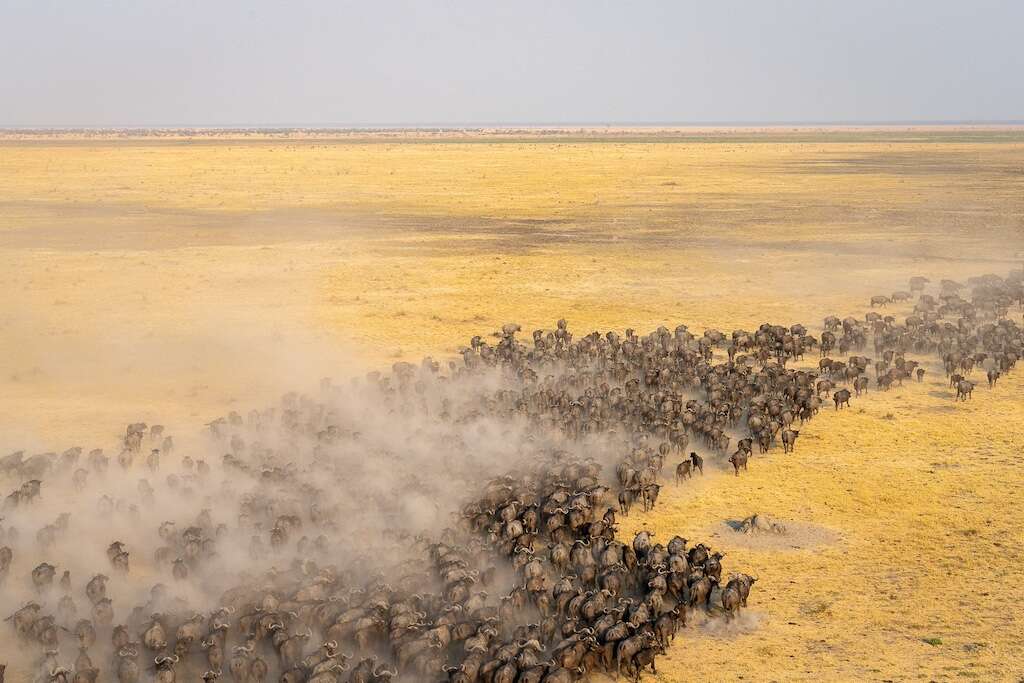
Four sets of long loping legs all stop abruptly at the same time with the precision of a perfectly executed pirouette, as four synchronized snouts point motionless into the crisp morning air. Silence. A flickering of huge Mickey Mouse ears. More silence. Then suddenly back into formation, one behind the other in search of the impala whose trail they’ve just recalibrated like a misdirected Uber driver. The African Wild Dog, whilst not the most glamorous among the plethora of extraordinarily rich wildlife at Mokete, is fascinating to watch in action. Somewhere between a dog and a wolf, it’s now an endangered species with fewer than 1,500 adults left, mostly because of ill-fated interactions with farmers. Mababe is home to one of the largest packs.
Another abrupt stop with faces pointing this time in the direction of a lion’s roar. Not too far away either. No time is wasted here as the hunters head off in the opposite direction. The dogs can’t run faster than an impala, but they have incredible stamina and, well…. doggedness, simply wearing their prey down over hours of pursuit. If successful they’ll eat as much meat as they can and hurry back to their den to regurgitate it for their eagerly waiting young. We, however, in our four-wheel drive, move stealth-like toward the roaring lion.
The size of France with a population of 2.4 million, Botswana is one of the world’s most sparsely populated countries. With the majority of that population along the South African border, this is effectively one never-ending, achingly spectacular wildlife sanctuary. Poaching is a perennial problem, as it is across the continent, but in the main, oversight of this awesome animal kingdom is exemplary.
Flying low across it by light aircraft or helicopter (as most visitors inevitably will) is to experience one of the most magical and majestic sights available to the modern-day traveler. To hover over the Okavango River, the world’s largest inland delta where waters rise in Angola’s highlands only to disappear into the Kalahari in an unsuccessful search for an ocean, is utterly mesmerizing. Huge herds of elephants and buffalo mingle with giraffes and hippos, splashing around in the shimmering pools and rivulets of the Okavango’s vast watery wonderland below. An accommodating chopper pilot might even take you down for your close-up.
[See also: Safari and Sustainability Reverie at Singita Ebony Lodge]
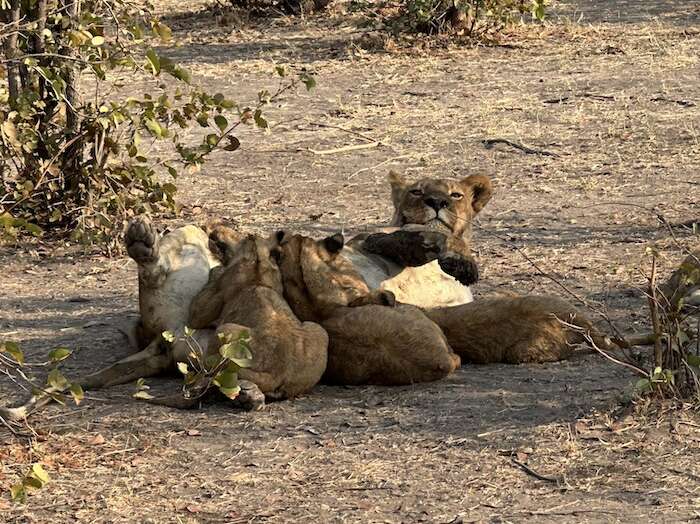
The Mababe concession with its featureless lunar-like Mababe Depression, 10 sq miles of former lake, is not the prettiest part of an otherwise relentlessly pretty country. The star attraction here is the proliferation and diversity of animal life. Even in well-managed jurisdictions like Botswana, animals can become accustomed to the presence of people and vehicles. Not so here. The hunting ban, followed by a Covid-induced safari shutdown, meant that Mababe’s 400 mammal and 100 avian species have since expanded exponentially. They’re also not overly familiar with safari vehicles.
It’s with considerable circumspection, therefore, that we approach the lions, where our experienced guide, Yompy, forewarns us about a particularly aggressive lioness. We find the whole pride sprawled out around the remains of a giraffe as if on a big summer family vacation. Cubs have turned what’s left of a giant rib cage into a playhouse while adults munch on the huge neck or tear at chunks of leg. It’ll keep them going until it’s time to hunt again. Immediately, the lioness springs to her feet, advancing purposefully.
One of the first questions novice safari-goers invariably ask is why these dangerous predators just don’t jump in the vehicle, only to be reassured that they’re simply not interested in us. Whilst that may well hold true, the lioness continues in our direction with a stare of withering intensity that I hope isn’t correlated in any way with hunger. Suddenly, her lissom feline face thrusts forward, and through huge flesh-ripping drool-drenched teeth bellows out a terrifying roar of paralyzing intensity, before lunging right at us. She stops just feet away. A collective nano-second shockwave reverberates through the vehicle including somewhat disconcertingly, Yompy. Then silence as she just stands there.
[See also: Inside Wilderness Safaris’ Bisate Kwanda Day Lounge]
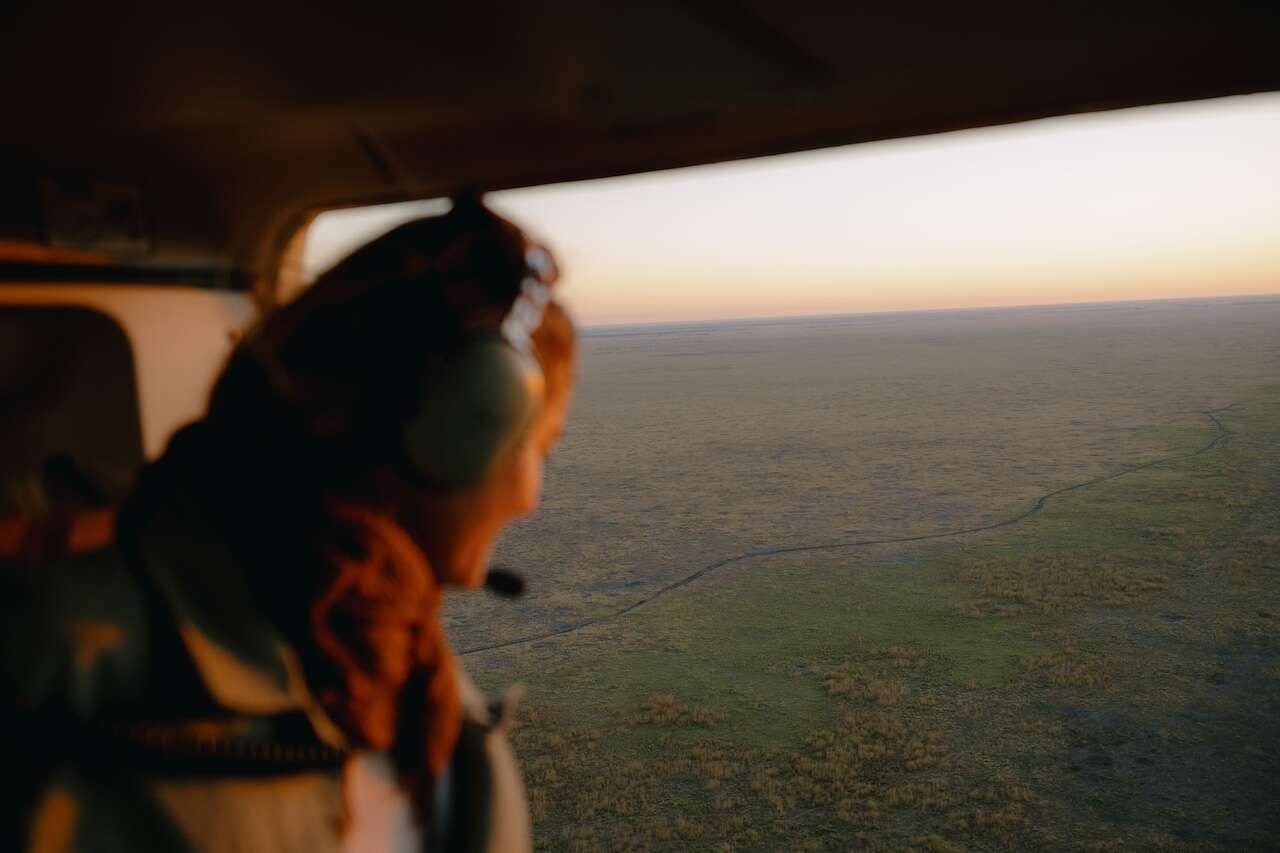
Not interested in us? As the stare-down continues, her huge tail swishing angrily back and forth like a giant windshield wiper, she looks pretty interested to me! Eventually, with the need to suckle her young assuming precedence, she saunters back to the giraffe carcass before lying prostrate on her back, legs outstretched as four hungry cubs pounce on her belly. But her head is still raised, and it’s still pointed straight at us. The message is clear: “Don’t push your luck. Stay right over there.” We do.
What Mokete lacks in influencer-ready stage-managed safari chic, it more than makes up with the raw intensity of such authentic animal encounters, where guests luckier than I have already witnessed the unforgettable drama of predator and prey interactions. At the purpose-built hide next to the watering hole we peer out onto the extraordinary sight of over 200 elephant trunks simultaneously siphoning water into huge thirsty mouths. Botswana is home to 130,000 elephants, a third of the world’s population and more than any other country. A sizeable number of them also seem to have identified Mababe as an attractive place to live.
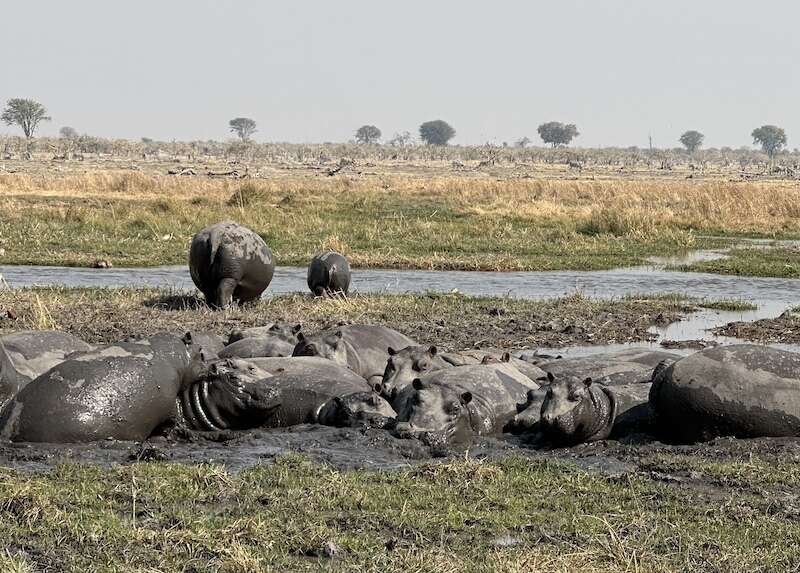
An innate sense of self-preservation propels elephants across Botswana’s border from places where wars rage or poachers predominate, into what is essentially a safe haven. From the largest herd of buffalo in Africa to the elusive leopard bounding out of an ebony tree, the aardvark frantically shuffling around at dusk as if he’d lost something while a huge burnt orb of the sun fell away into a far-off horizon, this undiscovered enclave represents a rare opportunity to engage with animals not used to engaging with humans.
Around two dozen hippos all squeezed together in a giant mud bath, wallowing their way through another afternoon of indolence, appear as fascinated by us, as we are by them. They’re just a few hundred yards from Mababe village underscoring how the San have co-existed with this astonishing assemblage of wildlife for millennia. But while this may be where humanity originated, the village reveals itself as no Garden of Eden. Hopefully impact investing, which prioritizes societal and environmental issues, will see some positive impact here. The roughly hewn awe-inspiring slice of Botswana bushland just served up by Dinny’s community is already making quite an impact.
[See also: Safari Like a Sovereign at the Royal Thanda Club]





